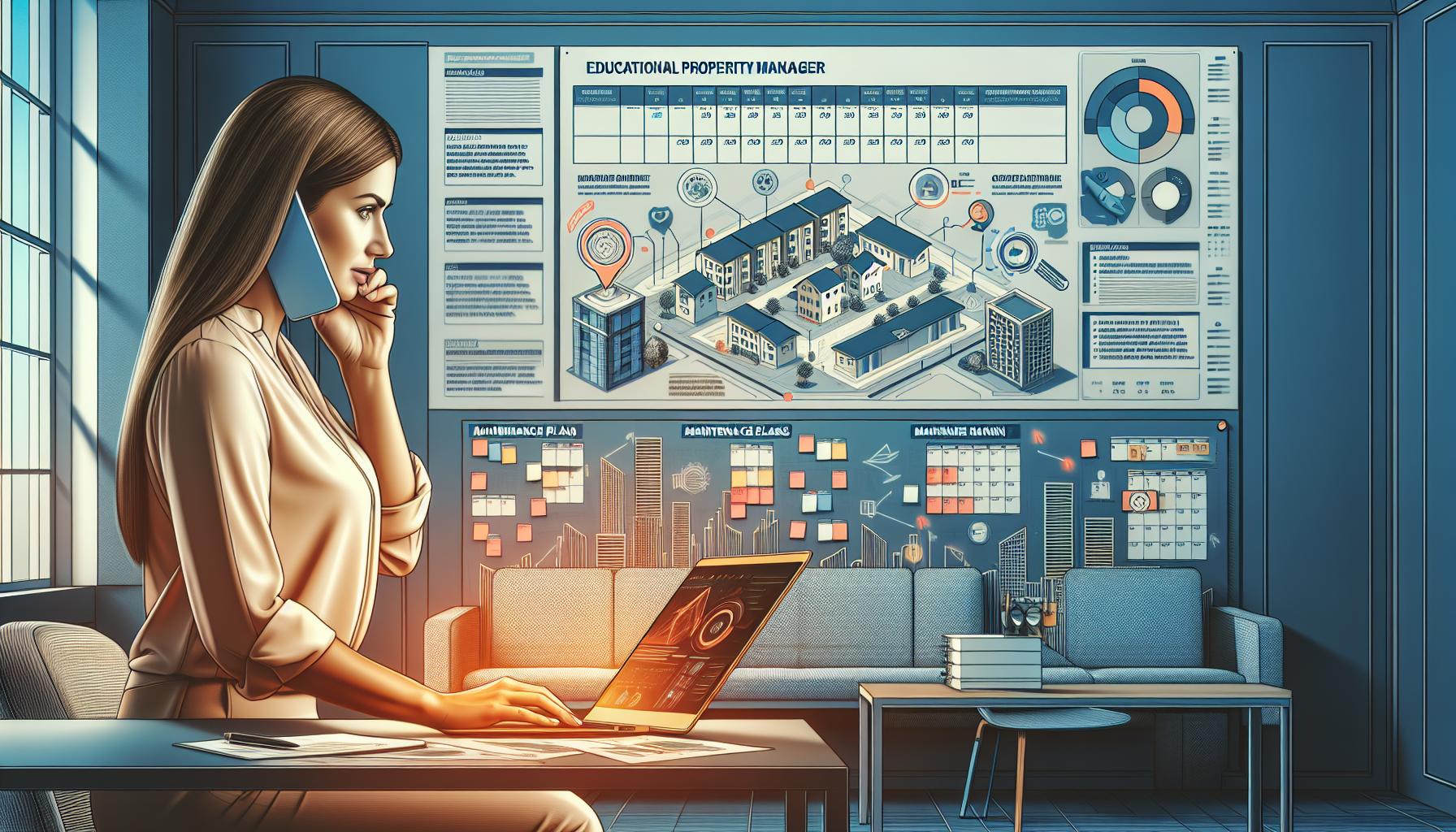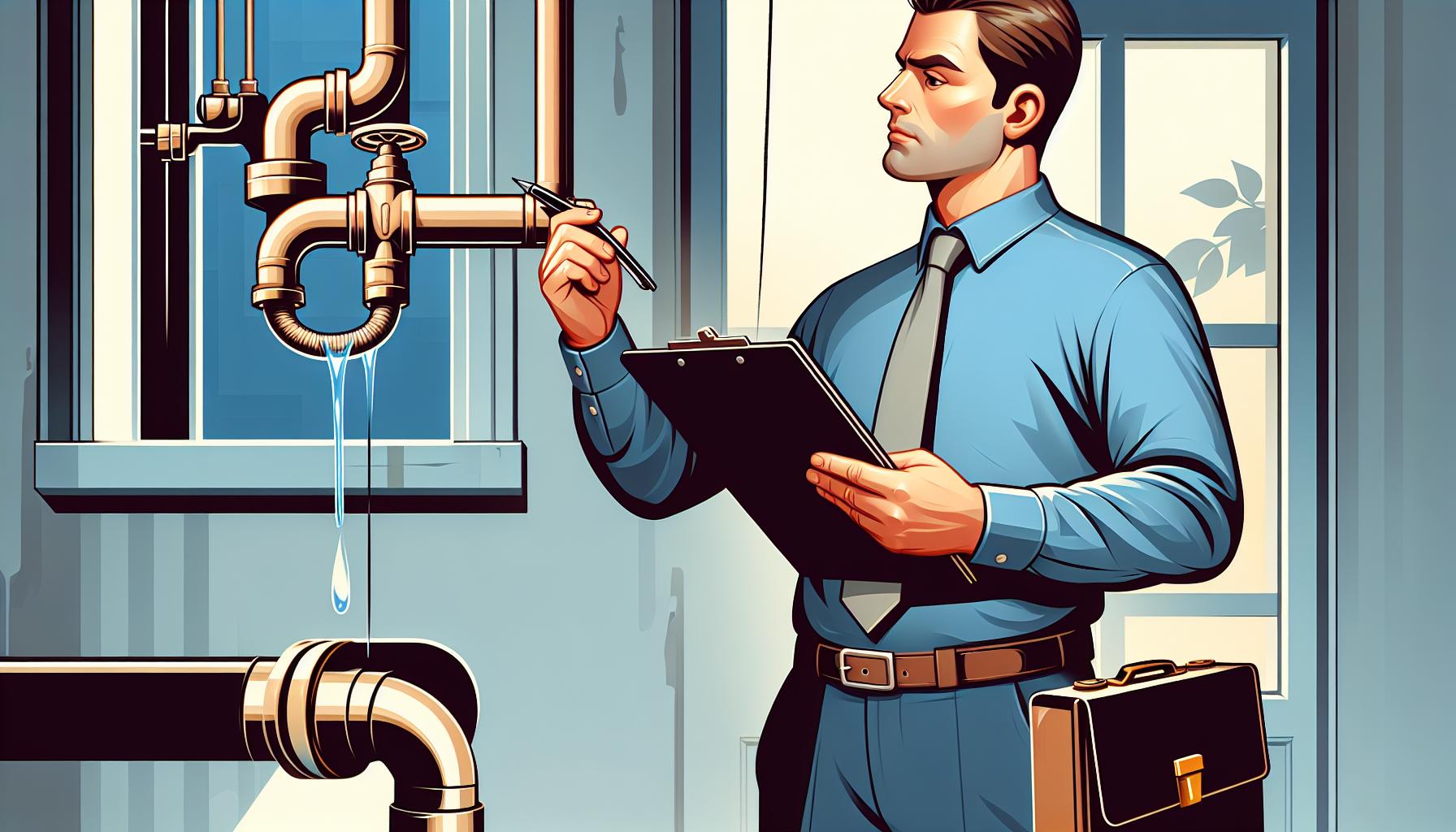Key Takeaways
- Emergency maintenance is crucial for addressing urgent issues like plumbing, electrical, HVAC, and structural problems to protect property and ensure occupant safety.
- Prompt action during emergencies minimizes property damage, reduces repair costs, and enhances tenant satisfaction.
- Proactive strategies, such as regular inspections and preventative maintenance, help identify potential risks and prevent emergencies.
- Effective communication during emergencies—with tenants, vendors, and contractors—is essential to streamline responses and maintain trust.
- Establishing a reliable 24/7 response team ensures swift handling of critical repairs, reducing downtime and risks.
- Building strong vendor and contractor relationships improves response times, ensures quality repairs, and strengthens emergency preparedness.
Handling property emergencies can be overwhelming, especially when unexpected issues arise at the worst possible times. From burst pipes to electrical failures, these situations demand swift action to protect both the property and its occupants. But how do you stay prepared for the unpredictable while minimizing stress and disruption?
I understand the challenges property owners face when urgent repairs are needed. Quick decisions, reliable solutions, and clear communication are essential to resolving emergencies effectively. Whether you’re managing a single property or an extensive portfolio, having a plan in place can make all the difference.
What steps can you take to safeguard your property and maintain peace of mind during emergencies? Let’s explore how professional management can help tackle these high-pressure situations with efficiency and care.
Understanding Emergency Maintenance Property Management
Emergency maintenance involves addressing urgent issues that can compromise safety, disrupt daily life, or cause severe property damage if not handled promptly. Managing these situations effectively protects both the property and its occupants.
What Is Emergency Maintenance?
Emergency maintenance refers to immediate repairs needed to resolve critical issues. These can include problems like gas leaks, power outages, or plumbing failures, all requiring swift action. Unlike routine maintenance, emergencies demand immediate attention to prevent hazards, property loss, or prolonged interruptions.
For instance, a broken furnace during winter calls for fast repairs to avoid health risks from extreme cold. Similarly, a roof leak during a storm must be fixed quickly to prevent structural damage or water intrusion. Emergency maintenance addresses these pressing needs to keep spaces livable and safe.
Why Emergency Maintenance Is Crucial in Property Management
Prompt emergency maintenance keeps properties safe and functional during unexpected events. Without quick action, small problems can escalate into costly repairs or unsafe conditions. Addressing emergencies effectively helps maintain tenant satisfaction, demonstrating that their welfare is a priority.
For property owners, timely interventions reduce long-term repair costs and mitigate risks of legal liabilities. For example, resolving electrical failures immediately can help avoid fires or equipment damage. Fast responses enhance trust with tenants and prevent negative impacts on property value.
How do you currently handle urgent repairs at your property?
Common Types of Emergency Maintenance Issues

Emergencies can disrupt normalcy and lead to significant property concerns. Addressing these issues quickly protects both the property and its residents. Do you recognize these common situations in property management?
Plumbing Emergencies
Issues like burst pipes, major leaks, or sewage backups demand immediate intervention. Water flowing uncontrollably can damage floors, walls, and personal belongings. For example, a plumbing leak in a bathroom can spread into adjacent rooms within minutes. Swift repairs reduce water waste, prevent mold growth, and restore functionality.
Electrical Failures
Problems such as power outages, exposed wiring, or sparking outlets can create safety hazards. A sudden blackout can affect essential appliances and lead to tenant discomfort or damaged equipment. Addressing faulty breaker panels or electrical surges quickly prevents accidents such as electrical fires or electrocution.
HVAC System Breakdowns
Failures in heating, ventilation, or air conditioning systems can create uncomfortable or unsafe environments. During peak seasons, extreme temperatures can pose health risks, especially for vulnerable individuals. For instance, a failed heater during winter or a broken air conditioner in high summer pressures property managers to act fast to maintain livability.
Structural Damages
Sudden damages like roof leaks, broken windows, or compromised load-bearing walls can threaten the building’s integrity. For instance, a damaged roof during a storm can cause water to enter the property, leading to further complications. Urgent repairs maintain safety and prevent the issue from escalating into costly restorations.
Strategies for Effective Emergency Maintenance Management

Managing emergency maintenance efficiently requires a proactive approach to prepare for urgent scenarios. Properties with solid strategies can handle emergencies swiftly, minimizing risk and disruption.
Establishing Clear Communication Channels
Effective communication during emergencies reduces confusion and delays. I prioritize setting up multiple communication options for tenants, such as phone hotlines, email, or dedicated apps. Do tenants know whom to contact in emergencies? Sharing contact details and procedures upfront can prevent panicked moments. Regular updates during the resolution process show attentiveness and build trust.
Creating a 24/7 Maintenance Response Team
Having a response team available round-the-clock ensures prompt action during emergencies. I focus on assembling a reliable team of skilled technicians for various urgent scenarios, such as plumbing, electrical, or HVAC issues. Are your team members trained for quick, safe resolutions under pressure? Using professionals with expertise in common emergencies guarantees faster, safer repairs.
Utilizing Technology for Real-Time Solutions
Technology simplifies responding to emergencies. I use tools like property management software or mobile communication platforms for instant updates and issue tracking. Would tenants benefit from automated notifications about repair progress? Adopting GPS-tracked work orders or virtual troubleshooting tools can speed up problem resolution, saving time and resources.
Conducting Regular Inspections
Routine inspections prevent many emergencies by identifying small issues early. I schedule checks for plumbing, electrical, HVAC systems, and structural elements. Could frequent inspections catch potential risks before they escalate? Early detection reduces repair costs and provides tenants with safer living conditions. Regularly reviewing inspection findings ensures no hazards go unnoticed.
The Role of Vendors and Contractors

Vendors and contractors play a crucial role in addressing emergency maintenance issues promptly and efficiently. Their skills and availability directly impact the safety of properties and satisfaction of tenants. Understanding how to manage these partnerships is key to successful property maintenance.
Building Strong Vendor Relationships
I work on fostering dependable and long-term relationships with vendors to streamline emergency responses. When vendors know my properties and standards, they can act more effectively during urgent situations. Clear communication and fair compensation build trust and encourage mutual loyalty. Are you maintaining open communication with your vendors to build a supportive partnership?
Ensuring Quick Response Times
Speed matters in emergencies, so I prioritize working with vendors who can respond swiftly. I maintain an updated list of contacts for immediate communication and negotiate service agreements that emphasize availability. For instance, I work with contractors offering 24/7 services to handle problems like flooding or electrical hazards. Do your current processes guarantee a fast response when time is critical?
Vetting and Selecting Reliable Contractors
For every contractor I hire, I focus on their qualifications, references, and past performance. I also review licensing and insurance to verify compliance with legal and safety standards. Quality work prevents recurring issues, saving time and reducing costs. Have you evaluated the reliability of your contractors to ensure long-term success in emergency management?
Challenges in Emergency Maintenance Property Management

Handling emergency maintenance effectively involves various obstacles that require thoughtful approaches. Property managers often face critical decisions that impact safety, budget, and tenant satisfaction.
Balancing Costs and Quality
Emergency repairs often come with high expenses, especially when swift response is required. Deciding between cost-effective solutions and work quality can be difficult. For instance, hiring a lower-cost contractor might resolve the issue temporarily but could lead to recurring problems. Understanding when to invest in durable fixes rather than opting for quick, inexpensive solutions is key. What strategies do you use to weigh these decisions?
Tenant Communication During Emergencies
Quick, clear communication can reduce stress in emergencies. Tenants need real-time updates on the situation and timelines for resolution. A lack of updates can increase frustration and strain relationships. Using tools like text messaging or automated notifications can streamline updates and keep tenants informed. How do you handle keeping tenants calm and informed during urgent repairs?
Managing Stressful Situations
Emergencies often create high-pressure situations. Coordinating with vendors, addressing tenant concerns, and managing repair timelines can feel overwhelming. Staying calm and prioritizing tasks helps maintain control. Having a predefined action plan can simplify decision-making and reduce errors during critical moments. What’s your approach to staying organized under such pressure?
Tips for Property Owners and Managers

Managing emergencies effectively requires preparation and proactive strategies. A structured approach makes it easier to handle urgent situations calmly.
Preparing an Emergency Action Plan
Creating a clear action plan simplifies decision-making during emergencies. Start by identifying potential risks like plumbing leaks, electrical failures, or structural damages. Outline steps for addressing each issue and assign responsibilities to key individuals or teams. Include contact information for emergency services, contractors, and utility providers. Regularly review and update the plan to cover new developments or potential risks. How often do you assess your property for emergency preparedness?
Educating Tenants on Emergency Procedures
Providing tenants with clear instructions during emergencies minimizes confusion. Share detailed guidelines on handling common issues like power outages or gas leaks. Use straightforward language when explaining how to report emergencies and whom to contact. Consider posting these instructions in common areas or including them in leases. Organize tenant meetings or distribute materials to increase awareness. What steps have you taken to ensure your tenants know how to act quickly in urgent situations?
Investing in Preventative Maintenance
Routine maintenance helps reduce the likelihood of emergencies by addressing issues early. Schedule regular inspections for plumbing, electrical systems, HVAC units, and other critical areas. Address small faults immediately to prevent larger problems. For example, inspecting for leaks or clogged drains can stop potential water damage. How often do you evaluate your property’s systems to avoid costly repairs later?
Conclusion
Emergency maintenance is an inevitable aspect of property management, but with the right strategies and preparation, it doesn’t have to be overwhelming. Staying proactive, fostering strong vendor relationships, and leveraging technology can make a significant difference in how efficiently emergencies are handled.
By prioritizing communication, preventative maintenance, and swift action, property owners and managers can protect their investments while ensuring the safety and satisfaction of tenants. A well-prepared approach not only reduces stress but also builds trust and long-term value for everyone involved.
Frequently Asked Questions
What is emergency maintenance in property management?
Emergency maintenance refers to urgent repairs needed to address issues that compromise safety, cause severe property damage, or disrupt essential services. Examples include burst pipes, electrical failures, gas leaks, and HVAC breakdowns. These situations require immediate action to prevent hazards, protect the property, and ensure livable conditions for tenants.
Why is prompt emergency maintenance important?
Timely emergency maintenance prevents minor problems from escalating into severe and costly damages. It ensures the safety of occupants, preserves property value, and enhances tenant satisfaction. Acting quickly during emergencies helps maintain trust between property owners and tenants by reducing disruptions.
What are the most common property maintenance emergencies?
Common property maintenance emergencies include plumbing issues like burst pipes, electrical system failures, HVAC system breakdowns, gas leaks, and structural damages. Each of these situations poses safety risks and can cause significant property damage if not addressed immediately.
How can property owners prepare for maintenance emergencies?
Property owners can prepare by developing an Emergency Action Plan, maintaining a list of reliable contractors, and educating tenants on emergency protocols. Investing in regular inspections and preventative maintenance can also help identify and address potential risks before they escalate.
Why is communication important during emergencies?
Clear and timely communication reduces tenant stress and confusion during emergencies. It helps property managers provide updates, coordinate swift resolutions, and maintain tenant trust by keeping them informed about the situation and expected timeframes for repairs.
How can property managers handle emergency maintenance efficiently?
Property managers can handle emergencies efficiently by creating a 24/7 response team, using property management software for real-time alerts, and maintaining a list of vetted and reliable contractors. Staying organized with a predefined action plan simplifies decision-making and ensures swift resolution.
What role do vendors and contractors play in emergency maintenance?
Vendors and contractors are critical to addressing emergency issues promptly and effectively. Building strong relationships, ensuring they understand property standards, and working with reliable partners offering 24/7 services are key to faster and high-quality repairs.
How does preventative maintenance help reduce emergencies?
Preventative maintenance, such as regular inspections and routine servicing, helps identify potential hazards early. This proactive approach minimizes the risk of unexpected breakdowns, reduces repair costs, and ensures a safe and efficient property environment.
What are the challenges property owners face during emergencies?
Challenges include managing repair costs while ensuring quality, making quick decisions under pressure, and maintaining clear communication with tenants. Balancing safety, budget, and tenant satisfaction in time-sensitive situations can be demanding for property owners.
How can technology improve emergency maintenance management?
Technology like property management software streamlines communication, tracks issues, and provides real-time updates. Automated notifications and digital tools enhance response times and organization, making it easier to address emergencies efficiently and effectively.
